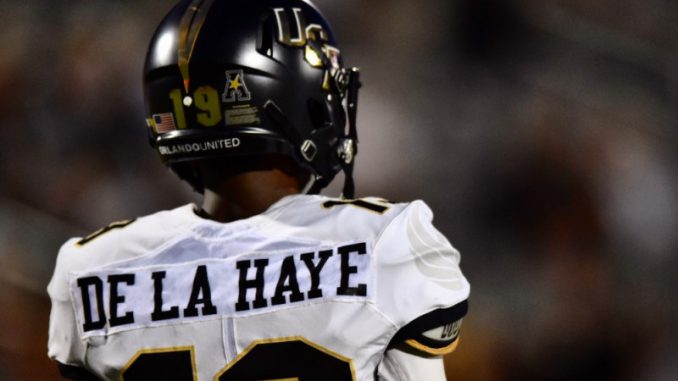
By Dimitrios Kontogiannis, Sports Editor
Donald De La Haye is a kicker who has a full-ride scholarship and is the starting kicker for the University of Central Florida. Well, he was, until the NCAA ruled him an ineligible player for having a YouTube account that boasted over 300,000 subscribers.
Why was he ruled ineligible? Because he made money, more specifically “advertising revenue.” Now, De La Haye will not only stop playing football at UCF, but had a possible NFL appearance stripped away from him, all because he made a couple hundred bucks having fun on YouTube.
This is only one element of the debate on whether athletes should be paid or not. Some people think this is a reasonable punishment for violating the NCAA’s rules about student athletes getting money, while others think the whole situation is preposterous. Here are the points of debate for each side:
Pay them:
The University of Alabama’s football team brings in an estimated $143.3 million in revenue. That’s more than all 30 NFL teams earned together in 2014. The NCAA has also regulated the time players train in their sports to 20 hours a week. It’s not surprising that athletes almost double that time, averaging a little over 43 hours a week. That’s more than the typical American works in a week. Combine all this with having to keep above a 3.0 GPA? They deserve some compensation. Think about who brings in the university’s money, especially in college football and basketball. People come to the games to see the students play, to see their stars lead them to victory. And think of when you buy tickets, who do they put on them? Athletes. But at the same time athletes can’t make a profit off themselves by selling merchandise with their name or picture on it. Kind of a contradiction isn’t it? These athletes are putting their bodies on the line for what? A future in that sport of course, but what happens when you are the star of the team, guaranteed to go to the pro level of that sport, then suffer a career-ending injury? You get nothing for it.
Don’t pay them:
These kids volunteered themselves to play and are technically already getting paid by way of scholarship. Universities pay for their dorms, meals, equipment, etc.
Another problem would be who should pay these athletes, the school or the NCAA itself?
And what about the small schools that don’t produce as much revenue as the big schools? They wouldn’t be able to pay as much, maybe not at all. Why would a student athlete choose to play for a small school that doesn’t pay much instead of a big school that does? Picking colleges would start to be more about who offers more money, instead of who has the best education fit for them.
A lot of people prefer college football over NFL football, and it’s usually for one reason: These kids are fighting for a NFL career, showing passion and grind, giving their all to the game. Paying NCAA athletes might take the passion out of the game. People would think that these guys would be doing it just for the money, not for the college or a future career. Also, football and basketball are the only sports that really pack the stands. Athletes who play other sports might not have a chance to get paid because their sport doesn’t bring in as much revenue.
At the end of the day, there will always be two sides to the argument, and they both have strong points.
The reality is more people don’t want athletes to be paid than do. The NCAA has too much pride and values their image too much to ever do something like pay college athletes.
But as new generations emerge, and new athletic directors come and go, there will be a more modern approach and a new look to the NCAA, someone our age who will have the ideas we have. There is definitely a strong possibility in the future, but for now it’s just an ongoing debate.
